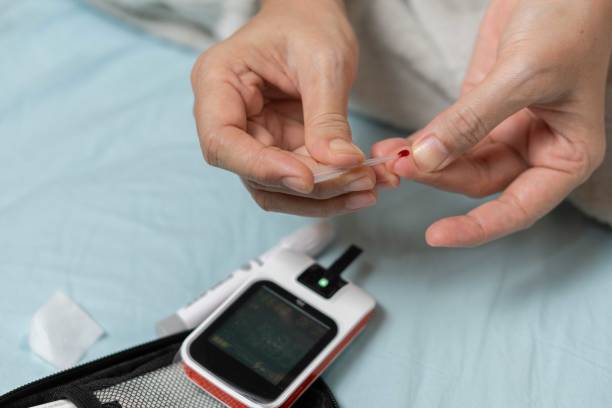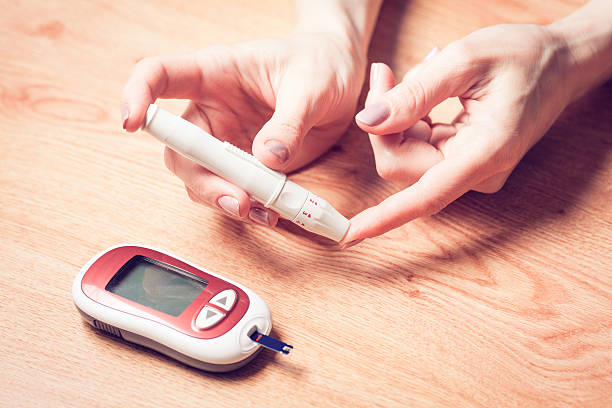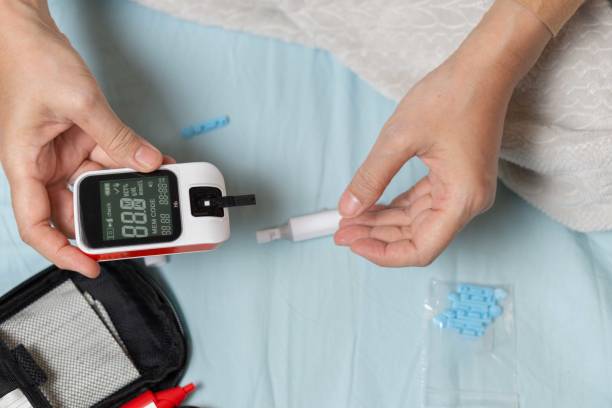Managing your blood sugar is important for everyone—not just for people with diabetes. Keeping your blood sugar steady can help you feel more awake, think more clearly, and stay in a better mood. One of the best times to support balanced blood sugar is in the morning. When you start your day with healthy habits, it can help keep your blood sugar stable and your energy steady all day long.
In this post, we’ll look at easy morning habits that help keep your blood sugar steady all day. These simple, science-backed steps can improve your energy, focus, and mood from morning to night. Small changes in your routine can lead to big results in how you feel and function.
Why Blood Sugar Balance Matters
Your blood sugar, also called blood glucose, is the main source of energy for your body. When it’s too high or too low, you might feel tired, unfocused, or moody. Over time, unbalanced blood sugar can lead to serious health issues like type 2 diabetes, heart problems, and weight gain.
Balancing your blood sugar helps you:
- Maintain a healthy weight by making balanced food choices, staying active, and keeping your blood sugar levels steady. Small daily habits can support long-term weight control and overall health.
- Avoid energy crashes by keeping your blood sugar stable throughout the day. Eating balanced meals and snacks can help you stay alert and feel your best without sudden drops in energy.
- Reduce sugar cravings by choosing meals that include protein, fiber, and healthy fats. These nutrients help keep your blood sugar steady and make it easier to resist sugary snacks.
- Improve your focus and concentration by keeping your blood sugar balanced. Stable blood sugar levels help your brain work better, so you can stay sharp and think clearly throughout the day.
According to the Centers for Disease Control and Prevention (CDC), keeping your blood sugar stable is important for preventing insulin resistance. It also plays a big role in managing your overall health and lowering the risk of chronic conditions.

Morning Habits That Help Stabilize Blood Sugar
1. Start With a Glass of Water
Dehydration can cause your blood sugar levels to rise. After a full night of sleep, your body is low on fluids and needs to rehydrate. Drinking a glass of water first thing in the morning helps refill your system, support healthy blood sugar, and wake up your metabolism.
Try adding a slice of lemon to your water for a touch of flavor without any added sugar. It also gives you a small boost of vitamin C, which supports your immune system and overall health.
2. Eat a Protein-Rich Breakfast
Skipping breakfast or eating sugary cereals can cause a quick rise in blood sugar, followed by a crash. This can leave you feeling tired and hungry soon after. Starting your day with a protein-rich breakfast helps slow down glucose absorption and keeps you feeling full and focused longer.
Great protein-rich options:
- Eggs
- Greek yogurt (unsweetened)
- Cottage cheese
- Tofu scramble
- Protein smoothie with nut butter and chia seeds
3. Pair Carbs With Fiber and Fat
You don’t need to cut out carbs completely, but it’s smart to pair them the right way. Eating carbohydrates with fiber, protein, or healthy fats can slow digestion and help prevent blood sugar spikes. This balanced approach keeps your energy steady and supports better health.
Try these balanced breakfast ideas:
- Whole-grain toast with avocado and egg
- Oatmeal topped with almonds and berries
- Chia pudding with coconut milk and fruit
To learn more about healthy blood sugar and nutrition, visit the Harvard T.H. Chan School of Public Health website. They offer trusted, science-backed information to help you make smart health choices.
4. Avoid Sugary Drinks
Morning coffee drinks with flavored syrups, sweetened creamers, or added sugars can lead to a quick blood sugar spike. These hidden sugars may give you a short burst of energy, but they often cause a crash later on.
Instead, try healthier morning drinks like:
- Black coffee with no added sugar
- Coffee made with unsweetened almond or oat milk
- Herbal teas or green tea, which offer antioxidants and gentle energy
If you enjoy a little sweetness in your drink, try using a natural, no-calorie sweetener like stevia or monk fruit. These healthy options give you great flavor without the extra sugar or calories. Best of all, they won’t raise your blood sugar, making them a smart choice for daily use.

5. Get Moving Early
Getting light exercise in the morning helps your body use glucose more effectively. Even a short walk, some gentle yoga, or a 10-minute bodyweight workout can help lower blood sugar and improve insulin sensitivity. It’s a great way to start your day with energy and balance.
Benefits of morning movement include:
- Boosting your energy for the day ahead
- Lifting your mood and reducing stress
- Helping to keep your blood sugar levels steady
According to the American Diabetes Association, regular physical activity is one of the best ways to manage your glucose levels. Moving your body helps lower blood sugar and improves how insulin works in your body.
6. Practice Stress Management
Cortisol, your body’s main stress hormone, naturally goes up in the morning to help you wake up. But too much stress can cause your body to release extra glucose into the blood, raising your blood sugar levels. Managing stress in the morning can help keep things more balanced.
Start your day with calming activities like:
- Deep breathing exercises or meditation to reduce stress
- Journaling your thoughts or writing gratitude lists to boost positivity
- Light stretching to gently wake up your body
Apps like Headspace or Calm make it easy to start a simple mindfulness routine. Just a few minutes of deep breathing or guided meditation each morning can help lower stress and support healthy blood sugar levels.
7. Check Your Blood Sugar (If Needed)
If you have prediabetes, diabetes, or insulin resistance, checking your blood sugar in the morning can give you helpful insights. It shows how your daily habits—like food, sleep, and stress—affect your levels and helps you make better choices for your health.
Keep a simple log to track your daily habits and progress:
- Your fasting blood sugar each morning
- What you eat for breakfast and how it affects you
- How you feel throughout the day, including your energy and mood
Talk to your doctor to learn what your target blood sugar levels should be. They can explain what your numbers mean and guide you in making healthy choices. With the right plan, you’ll be better prepared to reach your goals and stay on track with your health.
Other Helpful Tips for All-Day Balance
Stay Consistent
Your body works best with a routine. Try to wake up, eat meals, and get moving at the same time each day. Keeping a regular schedule helps support your metabolism, balance your hormones, and keep your blood sugar levels steady.
Stay Hydrated Throughout the Day
Keep drinking water throughout the day after your first glass in the morning. Staying well-hydrated helps your kidneys remove extra sugar from your blood. It also supports digestion and can help you feel full between meals.
Avoid Long Gaps Between Meals
Waiting too long to eat can lead to drops in blood sugar and strong hunger cravings. To keep your levels steady, try to eat every 3 to 4 hours. Make sure your meals and snacks include a healthy balance of protein, fiber, and fat to keep you full and energized.

Sample Morning Routine for Blood Sugar Balance
Here’s a sample morning plan to help spark ideas for your own routine:
- 7:00 AM – Wake up and drink a glass of water with lemon
- 7:15 AM – Light stretching or 10-minute walk
- 7:30 AM – Mindful breathing or journaling
- 8:00 AM – Breakfast: scrambled eggs with spinach and avocado toast
- 8:30 AM – Coffee with unsweetened oat milk
- 9:00 AM – Start work or daily tasks feeling energized and focused
Final Thoughts
Building a few simple morning habits can make a big difference in keeping your blood sugar steady. You don’t have to be perfect—what matters is making progress. Start by choosing one or two tips that fit your routine, and add more over time as they become habits.
Remember, following a regular routine is the key to lasting results. Making small, healthy choices each day can lead to big improvements over time. These steady habits help control blood sugar levels and support better overall health. Consistency matters more than perfection.
Which of these simple morning habits will you start with? Pick one that feels right for you and give it a try. Even small changes can make a big difference in how you feel each day. Share your choice in the comments below—we’d love to hear from you and cheer you on!
Take care of your body, find your balance, and choose wellness every day! Small daily actions—like eating right, moving more, and getting enough rest—can help you feel your best and stay strong.

